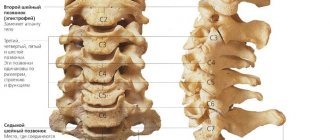Etiology and pathogenesis of the condition
Compulsive overeating is a kind of defensive reaction to a stressful situation.
The traumatic agent can be one-time and strong (for example, the death of a loved one, dismissal, bankruptcy) or repeated many times (ridicule from classmates, excessive demands from parents). One of the manifestations of depression is overeating. Some patients have problems controlling their emotions or expressing their feelings correctly. Thus, they try to deal with stress or, with the help of large amounts of food, try to replace the absence of friends or a loved one.
Psychogenic overeating may be due to biological factors. Often, with various pathologies of the development of the hypothalamus, pathological impulses may arise that emanate from the hunger center. At the same time, an uncontrollable desire to eat appears, which is a symptom of food addiction.
The hyperphagic response to stress has a complex and currently poorly understood pathogenesis. The main theory is based on the proximity of the location in the hypothalamus. When these centers “break down”, saturation signals are perceived incorrectly. Scientists have also found that low serotonin levels may be associated with this disease.
What are the signs and symptoms of binge eating disorder?
The clinical picture of compulsive overeating can be noticed both by the person himself and by people from his close circle. Signs of the disorder are as follows:
- food is perceived as the only source of inspiration, improving mood and fighting depression;
- the habit of eating even in the absence of hunger;
- desire to eat large amounts of food after suffering stress;
- the need to eat to capacity to cope with hunger;
- a feeling of self-loathing due to the food consumed and the appearance of guilt after this;
- reluctance to tell your loved ones about your food problem and become aware of it yourself;
- a person engages in gluttony only when alone; in company with other people he eats normally;
- eating large amounts of food in short periods of time;
- lack of control over appetite and the amount of food consumed.
The main symptom of an eating disorder is loss of control over one's appetite. If a person eats a large amount of food every time he experiences nervous tension, stress, depression or resentment, then this condition is a reason to contact a specialist.
Since compulsive overeating is most often observed in people with a vulnerable psyche and those who take everything to heart, they can become prisoners of this disorder for a long time. The risk group most often includes teenagers and young girls. Men are also affected by this disorder, but they prefer not to talk about it, and in such cases, overeating manifests itself in eating salted fish and washing it down with a lot of beer.
Another characteristic feature of psychogenic overeating is that during times of stress a person leans on unhealthy foods (sweets, baked goods, carbonated drinks, fast food), rather than eating fresh vegetables and fruits, soups and cereals, the benefits of which for the body are undoubted. All this leads to a rapid gain of excess body weight, and if left untreated, to obesity and related diseases.
Girl eats sweets
Signs and symptoms of binge eating disorder include:
- overeating or uncontrolled consumption of food, even in the absence of physical hunger
- the rate of food consumption is much higher than usual
- eating alone due to shame and embarrassment
- feeling guilty about overeating
- weight concerns
- depression or mood swings
- awareness that such a food system is abnormal
- cessation of all activity due to embarrassment due to excess body weight
- unsuccessful attempts at various diets
- eating small amounts of food in crowded places, but maintaining a large body weight
- a strong belief that life will be better when they can lose weight
- leaving food in strange places (closet, closets, suitcases, under the bed)
- indeterminate or secretive feeding pattern
- self-deprecation after eating food
- a strong belief that food is their only friend
- weight gain
- loss of sexual desire or promiscuity
- fatigue
Unlike bulimia nervosa, people with binge eating disorder do not eliminate excess calories after each binging episode by vomiting, exercising, or taking laxatives.
To begin with, it is worth clarifying for yourself what compulsive betrayal is and what the psychological motivation is associated with. The vast majority of people love to eat well and tasty, but only a small percentage of them become food dependent. As a rule, these are people suffering from serious emotional and physical problems who try to solve them with the help of food.
Thus, we can say that binge eating disorder is a type of eating disorder. If we talk about eating disorders, it should be noted that they can manifest themselves in the following forms:
- Anorexia nervosa. This is a common disease among adolescents, characterized by a distorted attitude towards their body, refusal to eat, and life-threatening severe weight loss. In the patient’s mind, low self-esteem and body weight, the desire to be more successful than others and to prove to everyone that they too can achieve success, are closely connected. The more depleted and thin the body becomes, the more intrusive the fear of gaining weight becomes.
- Bulimia nervosa. This is the uncontrolled absorption of a huge amount of food and subsequent disposal of it. As a rule, such patients cause attacks of vomiting, actively use laxatives and diuretics, and sit on strict diets for a long time. That is, such a chain is formed: absorption of food - getting rid of it.
- Compulsive overeating. Many of us overeat from time to time, either to relieve stress or extreme fatigue, or at a party with friends. However, such unsystematic overeating is not characterized in psychiatry as a disease. With compulsive addiction, overeating takes slightly different forms. For example, a person pounces on food and within a short period of time (usually two hours), with incredible speed and greed, absorbs a huge amount of food, much more than another, but healthy person with the same body weight would eat. During an eating disorder, the patient does not care what he eats and in what quantity. During uncontrolled saturation, a person may have a desire to stop, but he cannot do this. Then comes a period of “calm”, and so on until the next episode. Binge eating disorder is more common than bulimia or anorexia. Patients with these diseases bear all the consequences and difficulties of clinical obesity, although there may be people with normal body weight.
OTHER SOURCES OF PLEASURE ALSO HELP WITH OVEREating Disorder
It is scientifically proven that our desire for pleasure is programmed into our DNA, which encourages us to seek different ways to achieve a feeling of satisfaction throughout the day. Following this logic, we can with a high degree of probability assume that you lack pleasure and through food you are trying to make up for this deficiency. The moment you start using food as a substitute for pleasure, your health begins to deteriorate.
The reason for feeling great is not only food. Pleasure can be derived from many different activities, such as music, painting, concerts, movies, and even exercise. You just have to think about what you enjoy outside of food and find ways to do it. No matter how busy you are during the day, you can always find time for your favorite activity.
We too often find ourselves caught up in the hustle and bustle of everyday life - waking up, going to work, tidying up the house, having dinner, going to bed. Try to break out of this cycle by setting yourself a goal of at least a few minutes a day to do something you really enjoy.
It could be an afternoon walk, dinner with friends, a new hobby to take up on the weekend. Choose something that makes you happy. The more happiness your life brings, the weaker your desire to enjoy food will be.
Clinical manifestations
Binge eating disorder is characterized by bouts of uncontrollable, impulsive overeating that are not associated with hunger. The patient consumes a very large amount of food quickly, without enjoying the process itself. These types of eating episodes are called bulimic episodes. After them, a person has a strong feeling of shame and guilt.
There are a number of pathognomonic symptoms of gluttony, on the basis of which a diagnosis of compulsive overeating is made:
- Recurrent episodes of binge eating, which are characterized by eating large amounts of food and losing self-control during this period;
- The presence of at least three out of five symptoms such as high rate of food consumption, gluttony in the absence of hunger, stopping the absorption of food only when feeling discomfort, eating alone, feeling guilty after overeating or dissatisfaction with oneself;
- Significant distress due to binge eating episode;
The patient subconsciously views food as an accessible source of pleasure. However, if the patient is addicted to food, then he does not receive proper satisfaction or it is too short-lived. Binge eating episodes occur at least twice a week for six months or more.
Binge eating disorder also occurs in children or adolescents. But you need to be able to differentiate psychogenic gluttony from normal attacks of severe hunger after a stressful situation or heavy physical activity.
Symptoms
The main signs of psychogenic overeating can be identified both by the person suffering from this disorder and by the people around him. It can be quite difficult to hide some manifestations of the disease. Symptoms of compulsive overeating include:
1. Eating becomes the only option for relieving stress and a way to get rid of loneliness, melancholy and sadness.
2. Food is consumed alone, because the person does not want to show his problem to others.
3. There is a need to eat up until your stomach feels full.
4. There is no control over appetite and the process of eating food.
5. Food is accepted even in the absence of hunger.
6. Abnormally large amounts of food are consumed at one time.
7. After eating, it is common for a person to experience a feeling of guilt and self-disgust for another bout of overeating.
8. Gluttony during periods of stress is very pronounced.
A characteristic feature of compulsive overeating is the inability to control appetite. Mental anguish during stress is consumed unconsciously by large amounts of food. It is common for a person not to even notice that he is eating more than usual.
How to break free from food addiction
Gluttony is not only a psychological problem. Excessive food consumption leads to excess weight, even obesity, and this entails a lot of somatic diseases. These consequences can develop into a state of chronic diseases.
Eating foods rich in fats and carbohydrates increases the amount of cholesterol, triglycerides and low-density lipoproteins. They lead to the formation of atherosclerotic plaques, arterial hypertension and significantly increase the risk of strokes.
Due to decreased glucose tolerance due to excess weight, type 2 diabetes can develop. Excess weight increases the load on the musculoskeletal system, which leads to changes in joints, intervertebral hernias, and osteoarthritis.
The functioning of the gastrointestinal tract is also disrupted. Patients complain of periodic stool disorders (diarrhea, constipation), vomiting, epigastric pain, and other dyspeptic disorders. A large amount of “junk” food leads to the appearance of gastritis and ulcers of the stomach and duodenum.
Psychogenic overeating has no less harmful effects on the hormonal sphere. With a pathological increase in appetite, the production of thyroxine by the thyroid gland decreases. This affects the speed of metabolic processes in the body. Women experience disturbances in the menstrual cycle and the functioning of the reproductive system, and in men there is a decrease in potency.
In addition to somatic disorders, depression occurs, sleep disturbances appear, and the level of anxiety increases.
For patients with this disease, food is a way to dull strong emotions that they are not able to cope with on their own, and to protect themselves from their destructive influence. Risks associated with binge eating disorder include obesity and atherosclerosis. In some cases, a person tries to fill his own inner emptiness in such an unjustified way.
Unfortunately, an incorrect attitude towards food can only increase a person’s loneliness and negatively affect his behavior, mood and relationships with other people. Suffering from psychogenic overeating, the symptoms of which are closely related to nervous disorders, a person is exposed to various risks associated with an eating disorder.
- The way of life and habits that have been established over the years are changing. A person suffering from bouts of overeating tries to avoid sharing meals with other people, so as not to accidentally lose control over himself and show a carefully hidden addiction.
- Now the patient has to find extra time to indulge in his favorite pastime alone. Contacts with former friends are lost, pastimes do not contain the same activity, and the lifestyle becomes more withdrawn.
- After an attack of overeating, as a rule, there is an exacerbation of feelings of guilt or shame, accompanied by a state of depression. The patient experiences self-loathing, which, in turn, can provoke alcohol or drug abuse.
- An eating disorder has an extremely negative impact on health. Overeating leads to excess weight, which is the cause of various diseases. The load on the joints increases - arthritis appears, from a large amount of fatty and tasty high-calorie foods, cholesterol increases and hypertension develops, the heart suffers. The increased load on the digestive and other internal organs causes problems with the kidneys, gall bladder, intestines, as well as insomnia and other diseases.
Few people know that compulsive overeating can be treated using various neuropsychological methods. We’ll talk further about how to get rid of food addiction and compulsive neurogenic overeating. It is difficult for food addiction sufferers to learn to develop a healthy relationship with food based on physiological need rather than emotional instability. It is very important to seek help and professional support in time to get rid of compulsive overeating.
- Such disorders are successfully treated by psychologists. Specialists in this field eliminate the underlying causes of the problem, emotional traps from which the patient is unable to get out on his own and is accustomed to doing this through binge eating.
- Eating disorders are also treated in psychiatry. Doctors teach the patient effective methods of managing his internal state, the correct way out of stress, instill in the patient healthy habits, and skills to combat the urge to overeat.
- If the patient has not yet lost the remnants of self-control and willpower, he also needs to make efforts to save himself. Try to understand yourself, analyze the current situation.
Causes
The problem of overeating is so common for a reason. The main reason for this is the multifactorial nature of the disease. In most cases, the etiology of compulsive overeating is complex and it is not possible to identify a specific or leading factor. The most common factors that also have a powerful influence on the formation of this disease include:
Social and household
This section of risk factors includes a person’s unfavorable position in society, problems in the family circle and other social errors. As a rule, a psychopathological state begins in childhood, while the child’s psyche is not yet fully formed. The most common reason for the development of a compulsive type of overeating in the future is the formation by parents of a child of a clear connection between food intake and his merits or misdeeds. This mistake is very common and can lead to the formation of a mental disorder on a subconscious level. Much less often, this form of overeating occurs with an aggressive social focus on any ideal. Currently, it is important to look thin and fit, however, not every person has a physiological predisposition to thinness, which can cause a neurotic disorder and a condition similar to bulimia.
Biological
These risk factors and direct causes of the development of compulsive overeating include numerous pathological conditions of an organic nature. The most common diseases whose clinical complex includes overeating include neuroendocrine pathology of the hypothalamus. Reduced synthesis and secretion of the neurotransmitter serotonin causes a deficiency of serotonin in the parts of the brain responsible for satiety, hunger and eating behavior. Serotonin deficiency gradually leads to dyshormonal disorders of the endocrine system, which is expressed in reduced production of the hormones leptin and ghrelin. The severity of dyshormonal disorders is directly proportional to pituitary dysfunction. Almost always, compulsive overeating in combination with organic pathology of the brain is also combined with other mental disorders.
RELATED MATERIALS: Insomnia in a woman during pregnancy - we understand the causes and methods of treatment
Psychogenic
An important factor that has significant weight in increasing the risk of psychogenic overeating is stress and psychological factors. A constantly elevated level of anxiety, general psycho-emotional overstrain of the patient and a subdepressive state are a powerful trigger for the emergence of an independent form of compulsive overeating.
Genetic
Hereditary predisposition, tendency to be overweight and short stature are important factors. Of course, by themselves they are unlikely to lead to compulsive disorder and eating disorders, but patients with a genetic predisposition constitute a separate risk group and, when combined with other factors, have a high chance of developing such a disorder.
Immune
A very important factor in the development of a large number of diseases is the pathology of the immune system, and compulsive disorder associated with overeating is no exception. Reduced immunity leads to frequent infectious and inflammatory diseases, in particular colds. To fight an infection, the body requires the use of the maximum possible compensatory mechanisms, so the patient spends a lot of strength and energy to fight the infection, which requires their constant replenishment. However, in this case, it is easy to lose the line where a complete balanced diet ends and overeating and excess weight gain begin.
Hormonal
Studies conducted in recent decades have shown a direct relationship between the development of eating disorders and weight gain during pregnancy. It's no secret that during pregnancy a whole cascade of biochemical and hormonal changes occurs in the female body, which can lead to disorders. It has been proven that with a 10% increase in initial body weight during pregnancy, it leads to a threefold increase in appetite, and when losing the extra pounds gained, appetite is reduced by only 50%. The results suggest that pregnancy may be a trigger in the development of compulsive eating disorder.
Diagnostics
How do you know if you have compulsive overeating disorder? First, you should consult with a specialist. This could be a therapist who will give you a referral to the right doctor, or a psychotherapist who deals with similar disorders.
To refute or confirm the diagnosis, a special test is used due to the fact that neither instrumental methods nor tests are able to identify this disorder.
Based on the Diagnostic and Statistical Manual of Mental Disorders, a diagnosis is confirmed if 3 out of 5 criteria are met. Here they are:
- Eating alone.
- Eating food in the absence of hunger.
- Self-hatred, bad mood, feeling guilty after overeating.
- Any portion of food, including the largest, is eaten quickly, almost unnoticed.
- The feeling of fullness in the stomach after eating causes discomfort.
After this, weight monitoring is carried out: what the patient’s weight was before the stressful situation and what it was at the time of contacting a specialist. If there is an increase in body mass index (BMI), then this is further confirmation of the presence of an eating disorder.
Psychogenic overeating is not a separate somatic disease. This is a symptom complex that accompanies an acute reaction to stress. Patients suffering from psychogenic overeating do not necessarily suffer from excess, but in most cases they have a depressive state.
Diagnosis of this disease is based more on the patient’s subjective feelings. Therefore, a table has been developed that allows one to distinguish psychogenic overeating from other eating disorders.
| Objectively large amount of food | Normal amount of food, but the patient views it as excessive | |
| There is a loss of control over one's actions | Objective bulimic episode | Subjective bulimic episode |
| Control retained | Objective overeating | Subjective overeating |
Treatment methods
The right decision in the fight against food addiction is to seek help from a psychiatrist. Only a qualified specialist can help overcome addiction, find the true causes of the disorder and form a healthy model of dealing with stress.
Depending on the severity of the condition, an individual treatment algorithm is selected, which can be carried out on an outpatient or inpatient basis under the supervision of a psychotherapist. Currently, the following areas of psychotherapy are used to treat patients with compulsive psychogenic overeating, bulimia, anorexia and other eating disorders:
- CBT – cognitive behavioral therapy;
- DBT – dialectical behavioral psychotherapy;
- FBT is therapy involving immediate family members.
All of the above methods have scientifically proven effectiveness, are actively used and put into practice by psychotherapists at TsIRPP.
Family therapy
Particularly successful is family psychological therapy, which was developed for the treatment of patients with eating disorders by leading specialists at the Maudsley Clinic. A unique multi-family group has been organized at TsIRPP, in which not only patients, but also their immediate relatives, as codependent individuals, undergo therapy.
The program is aimed at finding the true causes of a particular eating disorder (bulimia, anorexia, compulsive uncontrolled overeating, etc.). It is extremely important to find out the root cause of the disease, this will help in choosing the right tactics.
The use of dialectical behavior therapy has a positive effect in the treatment of patients with compulsive overeating disorder. This method is aimed at finding new ways to deal with stress, teaching effective techniques of emotional regulation that are not related to eating or deliberately refusing it.
At the end of this stage of treatment, the patient will be able to painlessly give up the usual destructive ways of dealing with stress, strict weight control and diet regimens. Bouts of uncontrolled overeating will be left behind.
Food addiction is treated comprehensively. To solve this problem, consultation with a psychotherapist, nutritionist and therapist in the presence of somatic disorders is necessary.
At the very beginning of treatment, the patient must recognize the problem and admit it to himself. This is the first and most important step, without which the treatment will not be successful. You need to take this step together with your doctor and with the support of family and friends. Food addiction, like any other, can only be eliminated with the help of loved ones.
A psychotherapist or psychiatrist helps to cope with the very cause of gluttony. To do this, you can use the method of cognitive behavioral therapy. This approach helps the patient cope with the beliefs and false affirmations that pushed him to overeat. The therapeutic method is based on the theory of behaviorism: positive thoughts and actions of the patient are encouraged, as opposed to negative ones.
Gluttony is often the result of hostile relationships between the patient and his family, friends, and work colleagues. The method of interpersonal therapy in this case helps to solve two problems:
- Interpersonal role conflicts are situations in which the patient and the people around him have constant confrontations, which are the cause of psychogenic overeating;
- Role transition is the formation of a new positive attitude towards the situation and the patient’s adaptation to stressful conditions.
Dialectical behavior therapy has exactly the same goals. The psychotherapist teaches the patient to cope with emotional instability and develops the necessary skills for this. The main ones are the skill of “non-judgment”, the ability to concentrate on one action, self-soothing and the search for positive emotions not in food.
It is very difficult to overcome food addiction without the help of loved ones; their support is extremely important for the patient. Psychotherapeutic treatment for this purpose includes group therapy sessions.
The patient must actively participate in the treatment process. Good auto-training and self-help techniques are described in David Kessler’s book “The End of Gluttony.”
The nutritionist must select the optimal diet and help the patient create a meal schedule. This is done so that the patient can control his eating habits and becomes the “master of the situation.” He can also create a schedule of fasting days that the patient will do regularly.
Psychogenic gluttony is treated with antidepressants. These drugs increase the production of serotonin and normalize the sleep cycle. This is the only group of drugs that is indicated in official treatment protocols. Other drugs, such as anti-overeating pills, are not only ineffective, but can also be harmful.
The therapist prescribes medications depending on the concomitant disease caused by gluttony. To support the functioning of the pancreas, it is necessary to take enzyme preparations (mezim, pancreatin).
After confirming the diagnosis, the specialist prescribes the necessary therapy. How to deal with compulsive overeating? For this, there is medication and psychotherapeutic treatment, as well as correction of diet and, in some cases, folk remedies.
Is it possible to cope with psychogenic overeating on your own? This is extremely difficult to do, almost impossible. For this reason, it is necessary to contact a specialist as soon as possible to prescribe adequate treatment, based on the individual characteristics of the body.
Below we will talk in more detail about each of the treatment methods.
Medicines
Only your doctor should prescribe medications to combat compulsive overeating. As a rule, sedatives are prescribed. The following medications will help you cope with nervous tension and, as a result, forget about food:
- Anti-obesity pills - Orlistat, Xenical, Goldline, Rimonabant, Metformin, Exenatide-Byeta, Reduxin.
- Antidepressants, preferably from the group of selective inhibitors - Fluoxetine, Fluvoxamine, Paroxetine.
- Antiepileptic drugs - Depakine, Suxilep, Finlepsin, Encorat chrono, Konvulex, Topiramate (all available by prescription).
- Lisdexamfetamine is the only drug developed to treat binge eating disorder. In 2020, it was approved by the US Food and Drug Administration.
Lisdexamfetamine is a psychotropic drug that increases mental and physical performance, belongs to the group of amphetamines and contains a natural amino acid. It is actively used in the West. Depending on the country, it may be sold under the following names:
- Vyvanse - in the USA;
- Venvanse - in Brazil;
- Elvanse - in the UK and a number of European countries;
- Tyvense - in Ireland.
Produced in capsules of 10 mg, 20 mg, 30 mg, 40 mg, 50 mg, 60 mg and 70 mg. Approved for use in children over 6 years of age and adults.
Lisdexamfetamine has a number of side effects:
- decreased appetite and weight;
- anxiety;
- anorexia;
- indigestion;
- mood swings;
- sleep disturbance;
- vomiting, dry mouth;
- pain in the upper abdomen;
- dizziness.
In Russia, Lisdexamfetamine is prohibited for sale, as it is an amphetamine derivative. It is on the list of psychotropic and narcotic substances that are under strict control in the Russian Federation.
Group psychotherapy
Psychotherapy
The fight against compulsive overeating with the help of psychotherapy is carried out in several directions, depending on the patient’s preferences. Usually this is group, interpersonal, cognitive behavioral psychotherapy, as well as hypnosis (suggestion). Next, we will consider each of the methods.
Group psychotherapy is effective when the eating disorder is caused by insufficient socialization (excessive dependence of a person on the opinions of others). In this case, special mutual aid groups are created. The task of such groups is to eliminate emotional and nervous tension by increasing self-esteem.
The patient begins to communicate with other people with a similar disorder and understands that he is not alone in his trouble, and there is someone to support him. Usually in 20% of cases this is enough for recovery. This also includes family psychotherapy, when uncontrolled gluttony occurs against the background of discord with someone close to you. This method is most often used in the treatment of children and adolescents.
Interpersonal psychotherapy is a highly effective method of treating binge eating disorder. The duration of the therapeutic course is from 8 to 12 months. Helps the patient develop a sense of self-worth in society, promotes normalization of adequate communication with other people, as well as knowledge of how to get out of compulsive overeating.
When a person begins to perceive himself as an integral and self-sufficient person, he stops reacting to negative and offensive words directed at him, as well as accepting any criticism addressed to him. This allows you to reduce anxiety and increase stress resistance, and therefore cope with uncontrollable gluttony.
Cognitive behavioral psychotherapy is considered the most effective and short-term. The course of treatment is up to 5 months. This technique is aimed at solving such problems as the patient’s acceptance of himself, combating stress, learning self-control, improving the quality of life and the possibility of changing one’s attitude towards events that negatively affect the emotional state.
Diagnosis and treatment of psychogenic overeating
The diagnosis is made based on a conversation with the patient. Differential diagnosis is carried out with obesity, which is a consequence of long-term use of antidepressants, antipsychotics and some other medications. In the process of diagnosing psychogenic overeating, mood disorders and mental disorders caused by excess weight, but not associated with a paroxysmal loss of control over the amount eaten, are excluded. Among such disorders are anxiety and depressive disorders that arise as a result of worries about the loss of an attractive appearance, changes in relationships with others, lack of desired results when following diets, etc.
The main treatment method for psychogenic overeating is psychotherapy. Cognitive behavioral therapy, interpersonal therapy and dialectical behavior therapy are used. During cognitive behavioral therapy, a psychologist helps the patient learn to identify thoughts that provoke a psychological impulse to binge eating. The patient gets the opportunity to monitor the connection between his emotional state and episodes of overeating, and then learns to interrupt this connection at the initial stage, using various techniques and relaxation techniques.
The main goal of interpersonal therapy for psychogenic overeating is to identify problems in interpersonal relationships and eliminate these problems by improving communication skills. This technique allows you to reduce the number of negative emotions in the process of communication and, thereby, minimize the number of impulses to an attack of overeating. Dialectical behavior therapy is a combination of meditation techniques and cognitive behavioral therapy techniques. During therapy, a patient with psychogenic overeating learns to control their emotions and quickly eliminate the effects of stress.
Individual psychotherapy is combined with group sessions. During group sessions, patients learn how to create a healthy diet, receive support from people with similar problems, and share their experiences in dealing with the disease. Psychologists and psychotherapists specializing in the treatment of psychogenic overeating work in close collaboration with nutritionists. During the therapy process, work is done to change the diet, establish a clear meal schedule, etc. In some cases, psychotherapy and diet therapy are supplemented with drug therapy.
Consequences
If treatment for psychogenic overeating is ignored for a long time or the results of therapy do not produce any results, this can lead to irreversible consequences in physiological and genetic terms.
Possible physiological consequences include:
- various degrees of obesity;
- high blood pressure;
- hormonal imbalance;
- decreased immunity;
- diabetes;
- cardiovascular diseases;
- increased blood glucose levels;
- arterial blockage;
- deformation and weakening of the skeleton due to excess body weight;
- development of complexes and fears;
- mood swings;
- metabolic syndrome;
- death.
Psychogenic overeating entails changes in the genetic structure. A person with this eating disorder who ignores treatment will pass on to his descendants at the genetic level a tendency towards obesity, diabetes mellitus, and cardiovascular pathologies. Also affected are the genes that are responsible for the production of macrophages that protect the body from infections and various diseases. Considering all this, you should understand how important therapy for compulsive overeating is with mandatory treatment.
Girl reading a book
Books about compulsive overeating
One of the therapeutic methods of combating psychogenic overeating is the study of specialized literature by the patient himself. It contains a lot of useful and interesting information about eating disorders (ED).
Here is the list of references:
- Gillian Riley “Eat less. Stop overeating” - the book talks about how to distinguish psychological hunger from physical hunger, how to satisfy physiological hunger with quality food, and learn to “accept” psychological hunger.
- Andie Mitchell “It Was Me All Along: A Memoir” - the author shares from her own experience how she struggled with compulsive overeating and how she managed to get rid of excess weight caused by an eating disorder .
- Roxane Gay “Hunger: A Memoir of (My) Body” is an honest book about excess weight, low self-esteem, which the author tried to increase by eating a lot of food. Roxane Gay teaches self-care, what and how to eat to prevent overeating.












